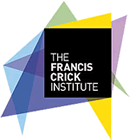About the Project
This 4-year PhD studentship is offered in Dr Eva Frickel’s Group based at the Francis Crick Institute (the Crick).
The parasite Toxoplasma gondii infects host cells by an active invasion process and resides within a parasitophorous vacuole (PV. Infection by Toxoplasma leads to production of the proinflammatory cytokine interferon gamma (IFN), which stimulates cell-autonomous defence mechanisms to kill and restrict the pathogen within the PV. We have identified two effector pathways of IFN-dependent killing of Toxoplasma in human endothelial and epithelial cells. Since macrophages are one of the most important innate immune defence cell types, we have set up human stem cell derived macrophages and their genetic manipulation by siRNA. This project will investigate the mechanism of anti-Toxoplasma control in stem cell macrophages and compare them to the pathways we have previously identified in endothelial and epithelial cells.
In IFN-stimulated human endothelial cells, the PV of type II, but not type I Toxoplasma is decorated with the cellular protein ubiquitin (1). Ubiquitination of intracellular pathogens can lead to autophagy-dependent clearance of the pathogen via host adaptor proteins (2). We indeed find p62 and NDP52, two such autophagy adaptor proteins, at the PV of avirulent Toxoplasma. In spite of this, in endothelial cells, destruction of Toxoplasma is mediated by non-autophagic acidification of the PV with characteristics of the endo-lysosomal pathway.
IFN upregulates the p65 Guanylate Binding Proteins (GBPs). The GBPs are a family of GTPases that are conserved amongst vertebrates and 7 Gbps have been identified in humans. Mouse GBPs have been shown to restrict Toxoplasma by disrupting the parasitophorous vacuole (PV) (3). However, we have demonstrated that human GBPs are not recruited directly at the PV in epithelial cells yet in GBP1 CRISPR knockout human epithelial cells, IFN-mediated cell autonomous killing of Toxoplasma is impaired (4).
Using human stem cell macrophages, you will investigate if
1) autophagy and/or ubiquitin-driven mechanisms can eliminate Toxoplasma and
2) if GBP-driven alteration of autophagy and/or cellular metabolism plays a role in Toxoplasma destruction.
For the first part of the project you will work with autophagy knockout and reporter stem cell macrophages that we have obtained and determine the effect on Toxoplasma killing and replication. For this you will use a recently set-up high content imaging platform to conduct automatic measurement of percent infected cells and measure Toxoplasma PV size. If a dependence of Toxoplasma restriction by autophagy is identified, you will determine which compartment the parasite is contained in is targeted (vacuole versus phagosome), you will study the kinetics of the restriction and identify essential players for this pathway by targeted siRNA of candidate genes.
For the second part of the project, you will investigate if knockdown of various human GBPs has an effect on cellular metabolism and autophagy and thereby on Toxoplasma growth. Specifically, you will test if GBPs have an effect on Indoleamine 2,3-dioxygenase (IDO) – an enzyme that catabalises tryptophan and is essential in Toxoplasma control. Additionally, you will probe if GBPs alter the metabolic state of the cell via mTor.
In summary, this project will lead to the enhanced understanding of IFN-mediated restriction of Toxoplasma in human cells.
Talented and motivated students passionate about doing research are invited to apply for this PhD position. The successful applicant will join the Crick PhD Programme in September 2018 and will register for their PhD at one of the Crick partner universities (Imperial College London, King’s College London or UCL).
Applicants should hold or expect to gain a first/upper second-class honours degree or equivalent in a relevant subject and have appropriate research experience as part of, or outside of, a university degree course and/or a Masters degree in a relevant subject.
APPLICATIONS MUST BE MADE ONLINE VIA OUR WEBSITE BY 12:00 (noon) NOVEMBER 14 2017. APPLICATIONS WILL NOT BE ACCEPTED IN ANY OTHER FORMAT.
https://crick.ac.uk/about-us/jobs-and-study/phd-programme/
References
1. Clough, B., Wright, J. D., Pereira, P. M., Hirst, E. M., Johnston, A. C., Henriques, R. and Frickel, E.-M. (2016)
K63-linked ubiquitination targets Toxoplasma gondii for endo-lysosomal destruction in IFNγ-stimulated human cells.
PLOS Pathogens 12: e1006027.
2. Sorbara, M. T. and Girardin, S. E. (2015)
Emerging themes in bacterial autophagy.
Current Opinion in Microbiology 23: 163-170.
3. Yamamoto, M., Okuyama, M., Ma, J. S., Kimura, T., Kamiyama, N., Saiga, H., Ohshima, J., Sasai, M., Kayama, H., Okamoto, T., Huang, D. C. S., Soldati-Favre, D., Horie, K., Takeda, J. and Takeda, K. (2012)
A cluster of interferon-γ-inducible p65 GTPases plays a critical role in host defense against Toxoplasma gondii.
Immunity 37: 302-313.
4. Johnston, A. C., Piro, A., Clough, B., Siew, M., Virreira Winter, S., Coers, J. and Frickel, E.-M. (2016)
Human GBP1 does not localize to pathogen vacuoles but restricts Toxoplasma gondii.
Cellular Microbiology 18: 1056-1064.

 Continue with Facebook
Continue with Facebook

